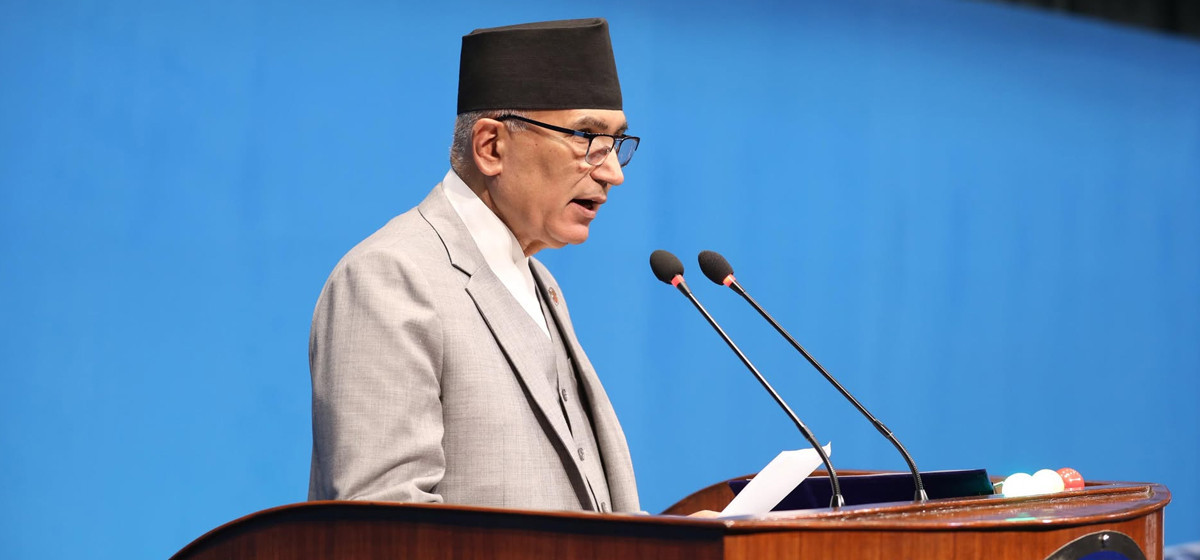Ah, weddings! That one milestone universally acknowledged as the turning point at which life really starts going downhill. While it is already too late for some of us, this fact doesn’t actually stop folks from getting married or wanting to do so. In fact, these days a lot of ‘multinational’ couples opt for not one but two weddings – what with one half being domestic and the other international you know. So, like the home and away legs of a football fixture involving more or less the same players, there are two ceremonies, one in Nepal and the other in a foreign destination. And for anyone who has attended both these types of weddings, the contrast between the two couldn’t be more conspicuous.
For starters, our wedding ceremonies depend on the alignment of the planets and stars (not to mention the availability of a ‘party palace’). The white wedding though depends primarily on the state of the couple’s bank balances and perhaps the season, if it is a themed wedding. Their weddings tend to be uncomplicated, relatively speaking. The whole event focuses more on the bride and groom while ours tends to focus on the half a million rituals that we have to perform. Consequently, prepping for our weddings is marginally easier than trying to assemble a nuclear device – arranging ‘band baja’, ‘janti’, flowers, the ‘mandap’, the ‘pandit’, clothes for the wedding, for the reception, and for all your relatives.
And the gold! Let’s not forget the gold that is often assembled bit by bit, heirloom by heirloom over the years. It feels a lot like those trailers for Hollywood films that speak of ‘an adventure that was ten years in the making’. Yeah, that’s how long it actually takes. But what really stands out in our part of the world and is often overwhelming for our ‘bideshi’ relations are the sheer number of guests at our events. I can swear that I actually have relatives who I meet exclusively at weddings and nowhere else. That sounds like a joke but sadly it isn’t.
The season of weddings

I don’t know why we bother with the RSVP in our wedding invites because no one cares. Here you can bring your one, plus the whole village and it would be okay. This blanket invitation results in the ‘Wham, bam, thank you mam’ mentality of I came, I ate and er…..bye bye. Over here, it is supremely important to feed everyone. Have you, at any party, ever been asked if you are having a good time? On the other hand, you have probably lost count of the times people have asked you if you have eaten. In fact, if you stay at a party long enough, hugging the bar (as a lot of folk tend to do) you will often find the hosts rounding up the people who haven’t had dinner before the buffet closes.
Our buffet chaos is in stark contrast to the wedding meal of the foreign leg of a multinational wedding, which usually tends to be understated and private in nature. You have your table with your name tag and are generally left alone to eat and drink in peace. I attended a wedding in France last year where the entrées were served at eight and the dessert at around half past twelve – such was the leisurely pace of the wedding dinner. Granted, you are pretty drunk by the time you finish but it is this sort of serenity that is missing in our ‘swadeshi’ ceremonies. It certainly beats waiting in line at the buffet, while the people in front of you spend ages picking and choosing their pieces of mutton. Seriously though, what’s up with that? It annoys me no end.
Our weddings are an assault on the senses even for those of us steeped in its festivities – from the riot of colour to the deafening brass bands to the food. The white weddings have a certain order to them – from color coordinated best men and bridesmaids to rehearsals for the actual ceremony. Here, in the old days, some people wouldn’t even have seen their future husbands and wives, never mind the rehearsals. You would see your wife or husband on the day – a sort of life changing lucky dip that could go either way. It’s like the ‘I’m feeling lucky’ button on the Google search page – you don’t want to go there.
And all this before we even touch upon the concept of arranged marriages that is an entire story in itself. Anyway, even though our ceremonies are comparatively more elaborate (now there’s an understatement), I can see our weddings getting much simpler in the near future. We have already shortened it down from a million days to about five – give or take one or two days for religious or other customizations. At the end of the day, all weddings are happy affairs regardless of the type of pomp and ceremony. It’s just the living together afterward that’s difficult.
The writer loves traveling, writing, and good food when he is afforded an escape from the rat race. He can be contacted at gunjan.u@gmail.com





































